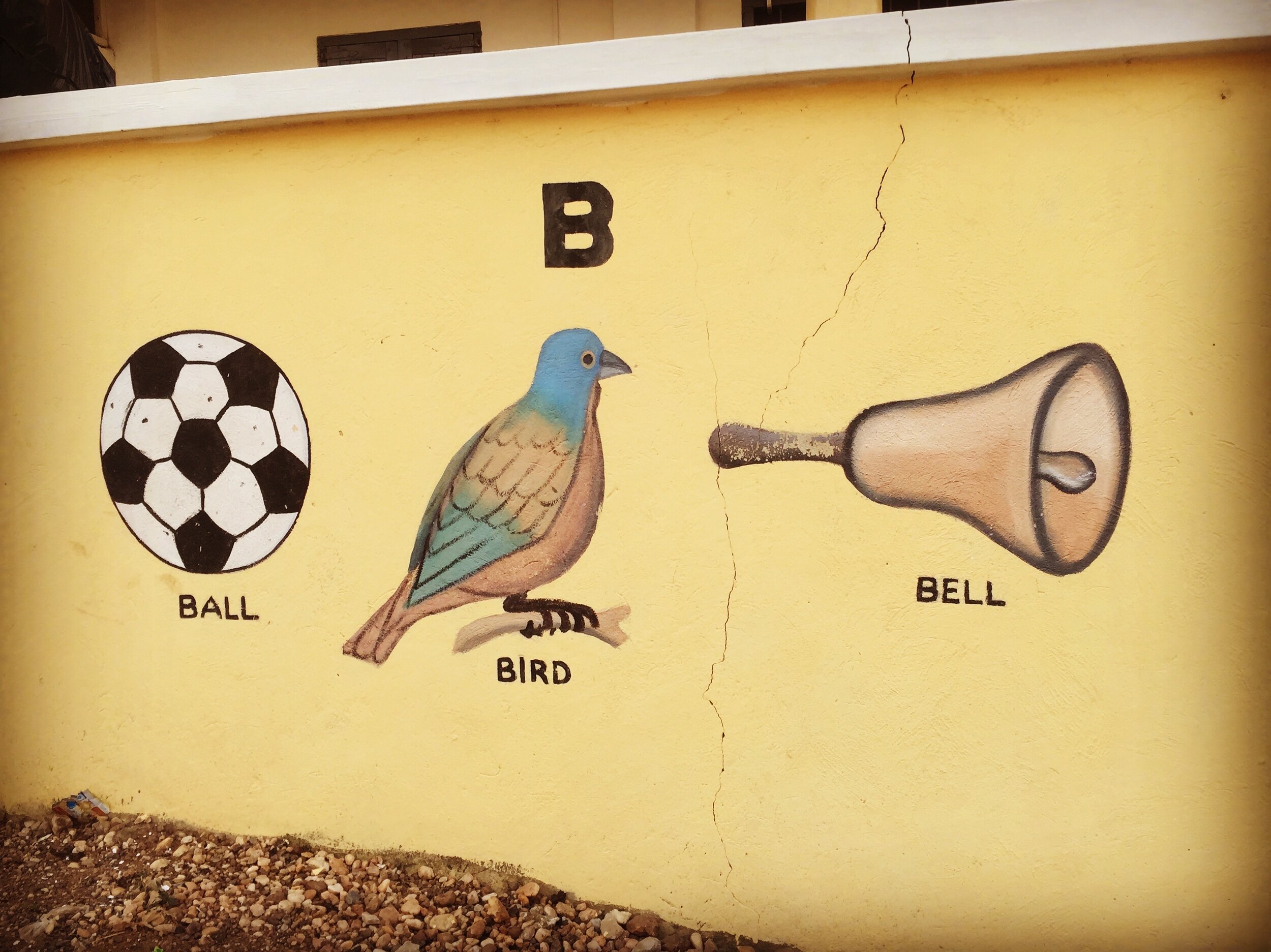
teaching
I love to teach! In addition to teaching positions at the University of Arizona, Rutgers University and Colorado State, I have taught in elementary, middle and high school settings in South Korea, México and Oregon. Inclusion, social justice, student-led learning and creativity are at the heart of my pedagogical approach, and I have received mentoring and teaching awards from the University of Arizona and Colorado State University.
Many collective members started off as students in my courses — so if you’ve taken a course with me, and you’re interested in research, check-in via email to see if there are current opportunities.
Please see my policy on letters of recommendation.
Current courses at University of Michigan:
Environmental Racism, Health & Pathways to Justice
This course examines environmental racism in historic and contemporary settings, and links environmental racism to uneven burdens of disease and ill-health. This course operates with the assertion that environmental racism is real and a lived experience for many people worldwide. We will not debate the importance of “social determinants,” risk factors, or behaviors. Rather, we will investigate the historic, spatial, and socio-ecological processes (e.g. racial capitalism, white settler colonialism, stigmatization) that shape environmental racism and related health outcomes. We will also examine how people mediate these dynamics and work collectively toward healing, care, wellbeing, and justice. We will reflect on positionality and our respective roles in contributing to, communicating about, and engaging with environmental racism and justice.
Feminist Methodologies in Environmental Justice
This course explores how intersectional feminist thought shapes the research questions we ask, the methods we use, data analysis, and our relationships with research participants and communities. This course will examine two interrelated dimensions: 1) conceptual frameworks underlying different approaches to feminist research, and 2) the practical techniques for designing and conducting interdisciplinary feminist projects.
Previous courses taught as full responsibility instructor:
Colorado State University, Department of Anthropology & Geography
Introduction to Geography (GR100)
Geography of Global Health (GR305)
Development Geographies (GR418)
Gender, Culture & Medicine (ANTH416)
Anthropology of Global Health & Justice (ANTH571)
Space, Place & Adaptation (ANTH617)
Rutgers University, Department of Human Ecology
Agrarian Landscapes (EPIB429)
Health & Society (EPIB141)
Nature-Society Theory (interdisciplinary graduate seminar) (EPIB501)
Theories & Reasoning (EPIB110)
University of Arizona, School of Geography and Development
Introduction to Physical Geography (NATS101)
Environmental Field Methods (GEOG303)
Geography and Gender (GEOG372)
Geography of Middle America (GEOG411)
Geography of South America (GEOG412)
University of Arizona, Center for Latin American Studies
Modern Latin America (co-instructed with Dr. Margaret Wilder and Dr. Liz Oglesby) (INDV102)
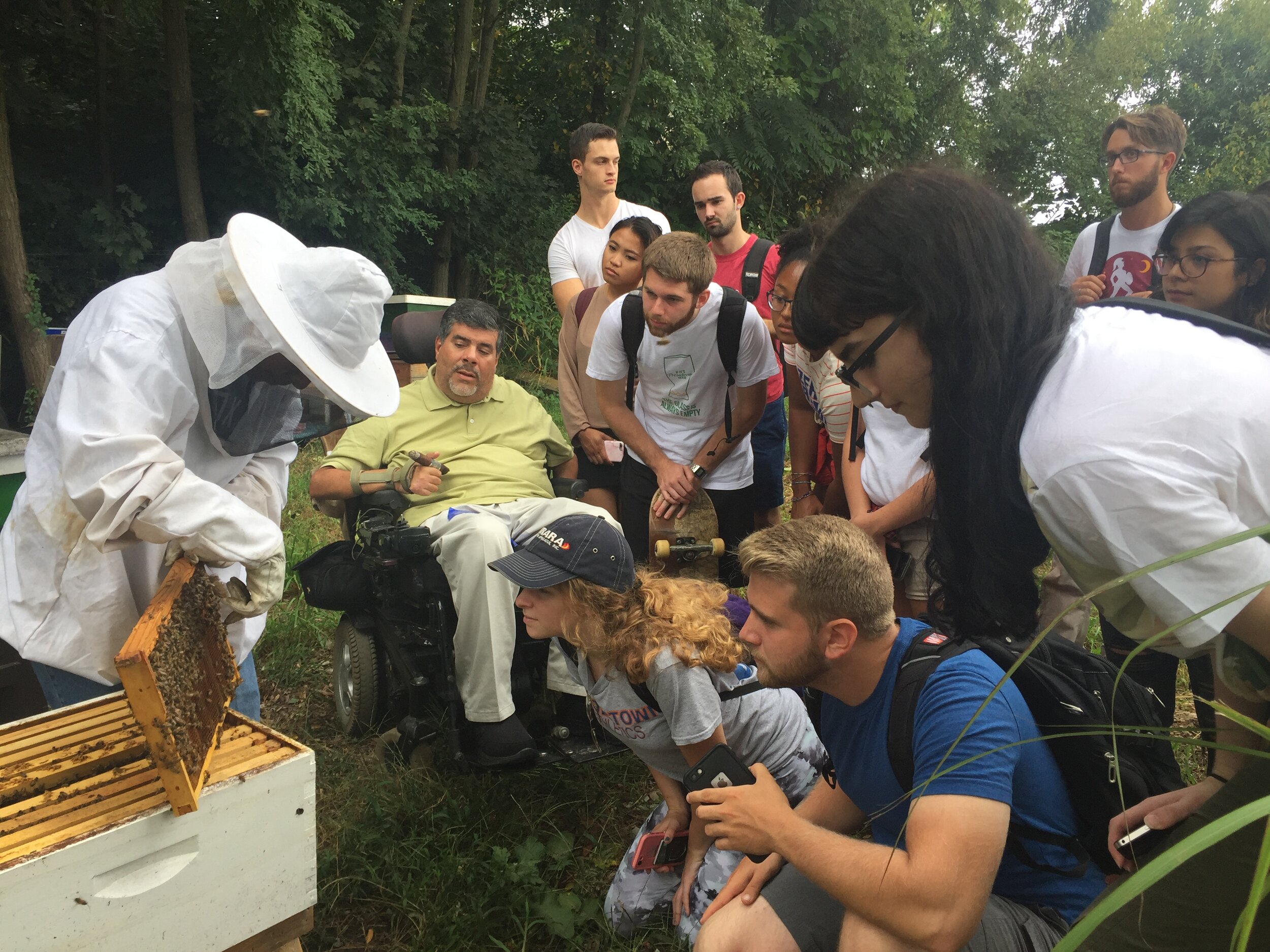
Lesson in NJ bee keeping.
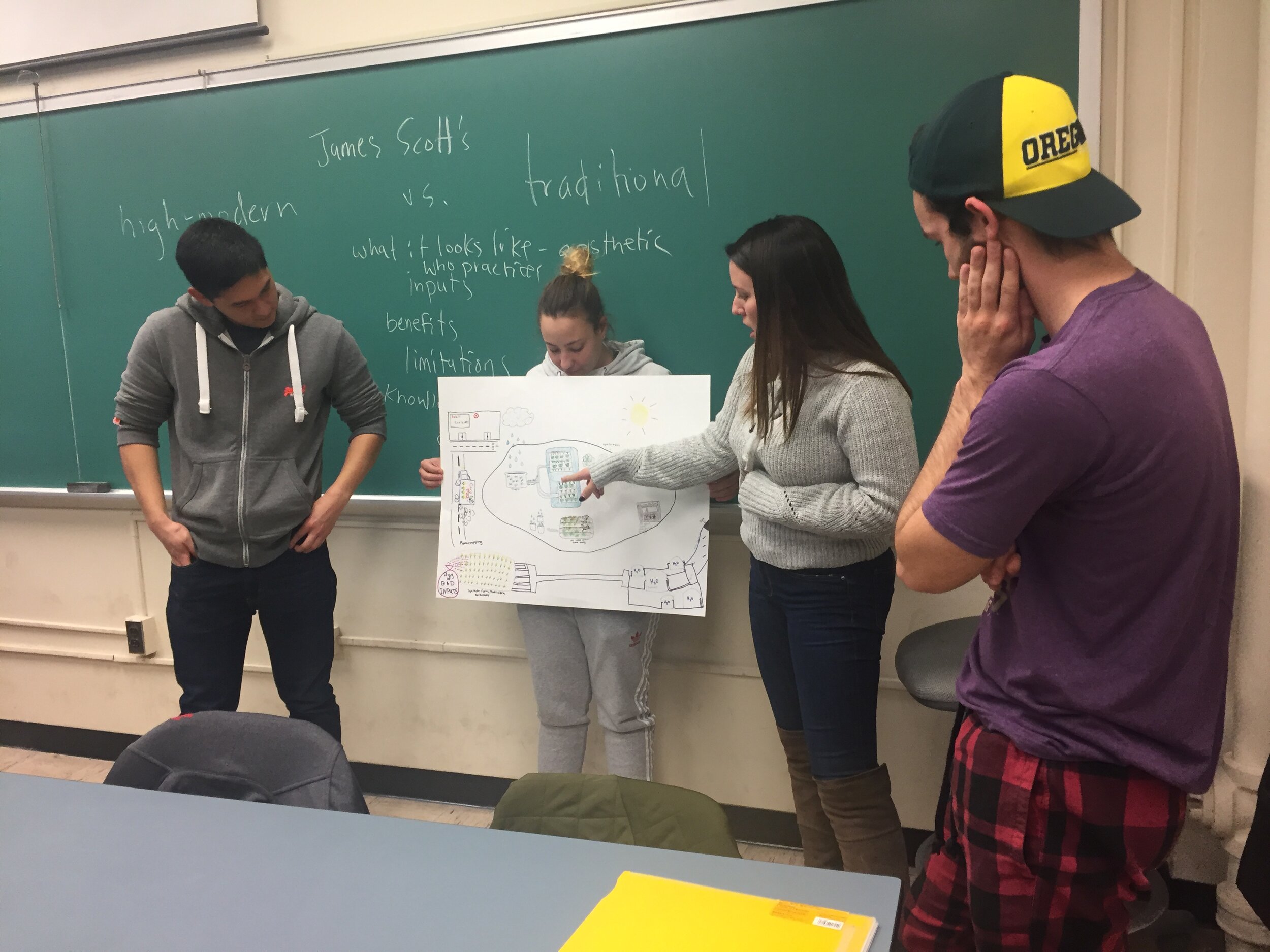
Students present drawings of high-modern/traditional binary.

A visit to an urban garden for Agrarian Landscapes.
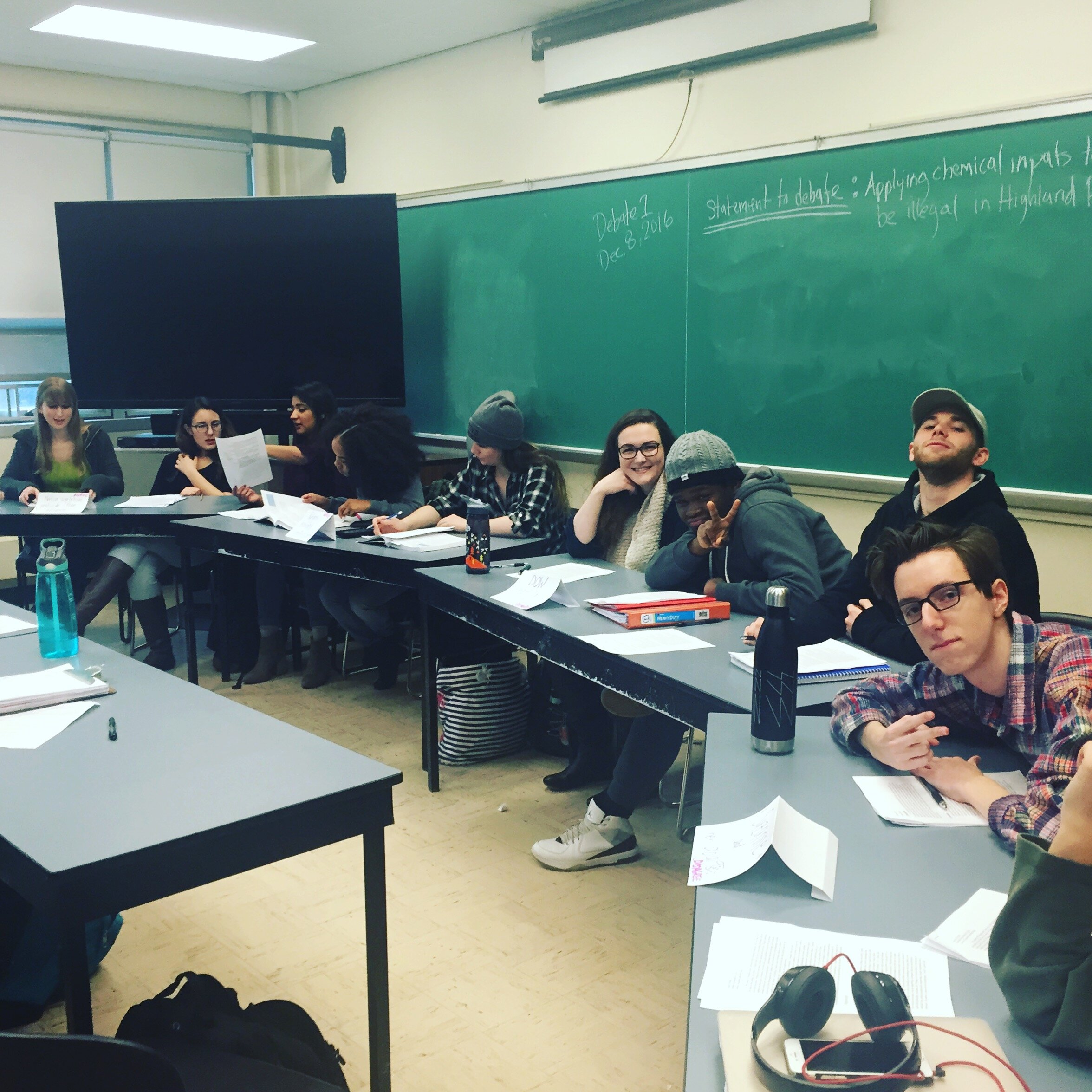
Students prepare for classroom debates at Rutgers University.

University of Arizona students and members of the Just Coffee cooperative in Agua Prieta, México.
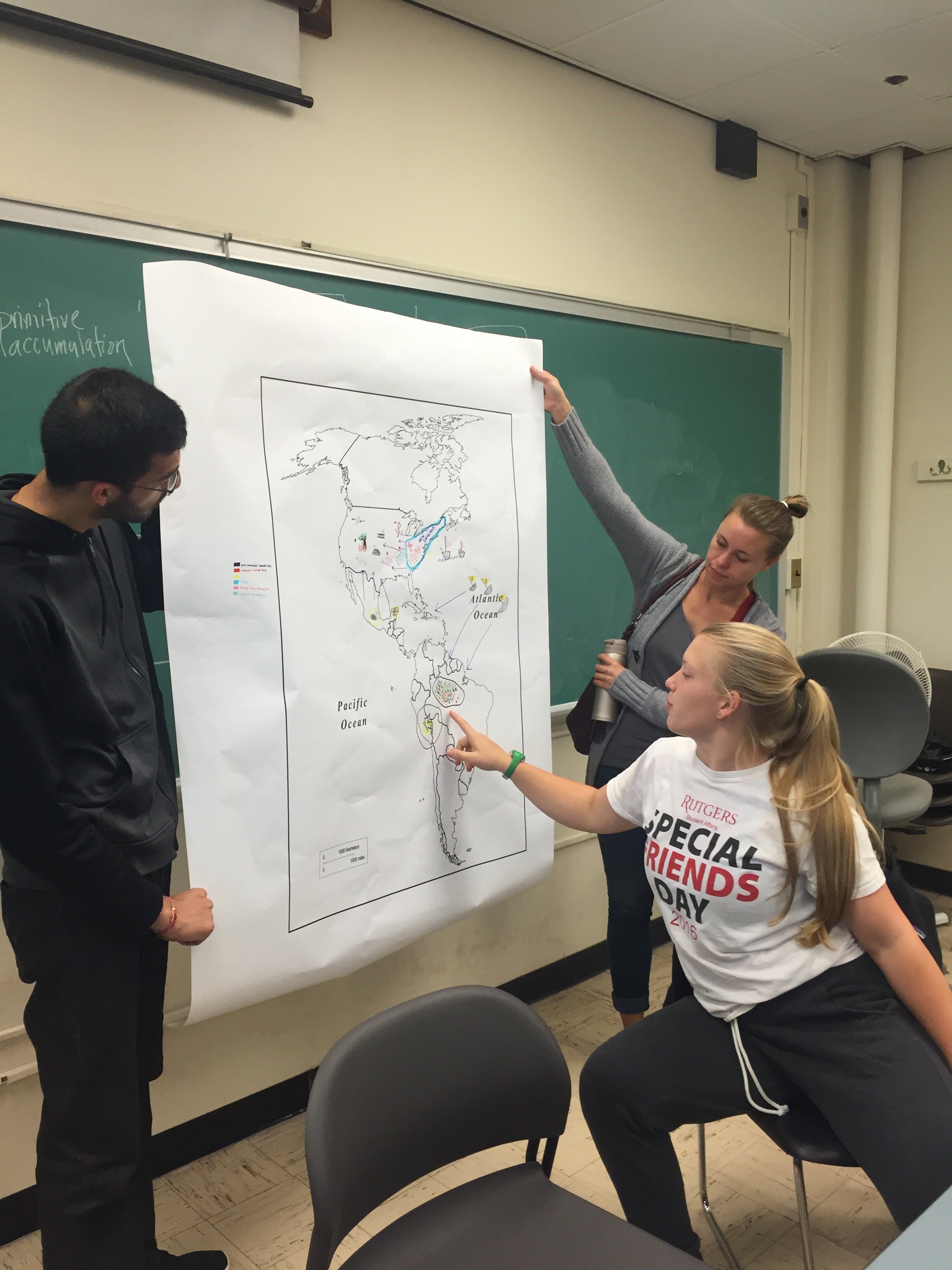
Presentation of maps illustrating North American land-uses in 1491.